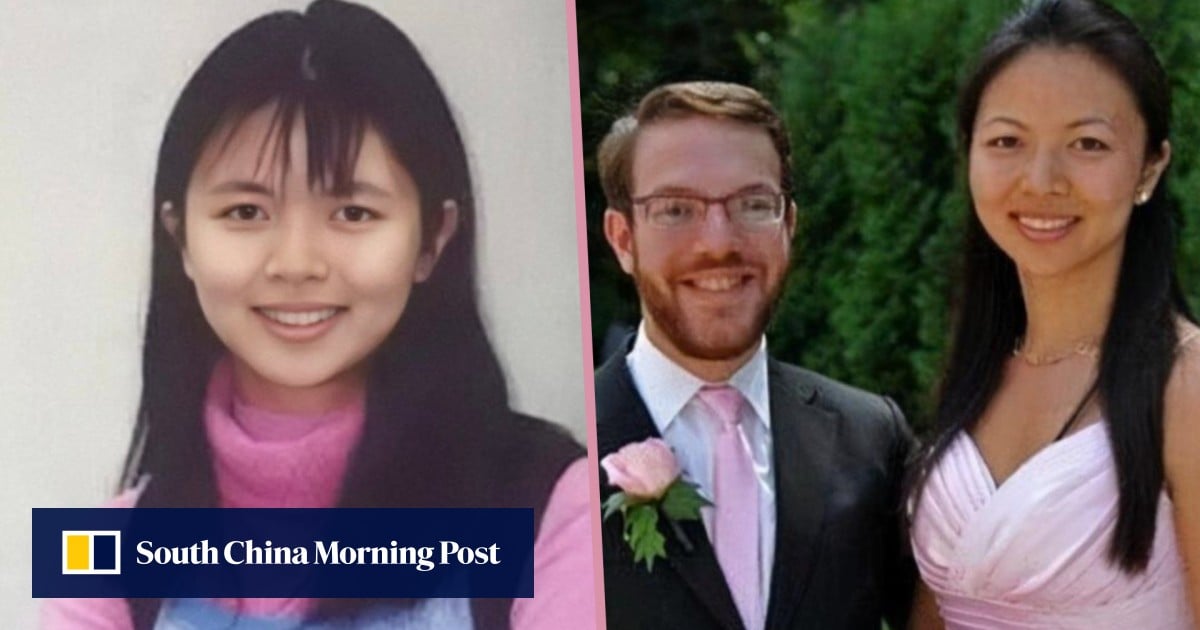In 1999, following her graduation from the renowned Chengdu Foreign Languages School in the southwest of China’s Sichuan province, she received admission to Harvard University on a full scholarship to pursue studies in Applied Mathematics and Economics.
Liu Yiting gained national recognition in 1999 when she was awarded a scholarship to the esteemed Harvard University. Photo: Liu Yiting
While Ivy League universities were recognized in China, only a few undergraduate students opted to pursue their studies there, with many unaware of this educational opportunity.
Therefore, when Liu’s mother and stepfather authored a book titled Harvard Girl narrating their daughter’s journey and their role in her education, it captured nationwide attention.
The publication sold over two million copies in China, sparking a wave of aspiration among Chinese parents to send their children to American universities.
This phenomenon also gave rise to a new parenting approach known as jiwa, or “chicken blood parenting”, characterized by intense academic pressure imposed by parents on their children.
However, in recent years, there has been a growing backlash against the methods employed by Liu’s parents, with criticisms labeling them as “extreme.”
One anecdote shared in the book details a technique aimed at enhancing Liu’s resilience, involving the endurance of touching ice.
She recounted an instance where she endured the sensation of a frozen cube on her fingers for eight minutes, considering it a significant achievement despite initially experiencing “excruciating pain” followed by “complete numbness.”
According to Liu’s LinkedIn profile, subsequent to her graduation from Harvard in 2003, she held positions at the Boston Consulting Group and PepsiCo. By 2016, she assumed the role of Chief Operating Officer at the investment management firm Coalescence Partners.
She tied the knot with her fellow Harvard peer, Scott Sambur, who served as a partner at the law firm Seward & Kissel until the previous year.
On Chinese social media platforms, some individuals expressed disappointment over Liu’s perceived transition to an “ordinary American middle-class” lifestyle, contrary to the expectations of greater accomplishments and contributions.
Conversely, others viewed Liu’s life as a manifestation of success, extending beyond material wealth to encompass the freedom to lead a content and authentic existence.
“Success is not solely defined by admission to prestigious universities and financial prosperity. It encompasses the liberty to embrace one’s true self and live a joyous and serene life,” remarked a user on Weibo.
Between 1978 and the conclusion of 2021, China dispatched eight million students overseas for studies, with 5.5 million returning to their homeland post-graduation.

Certain individuals on Chinese social media platforms critique Liu’s post-Harvard lifestyle as falling short of anticipated standards. Photo: Shutterstock
Given the escalating unemployment rates among the 16-24 age bracket, returning overseas students, referred to as hai gui, are encountering diminishing value associated with their degrees in the competitive job market.
On mainland social media, an increasing number of parents are disavowing the jiwa parenting methodology.
A mother on the social media platform Xiaohongshu shared that her elementary school-aged son had “lost his spark after being pushed to excel academically. I have abandoned jiwa. I will empower my child to embrace his individuality.”

